COMMUNIQUE
FROM THE EFInA WEBINAR ON “SUSTAINING FINANCIAL HEALTH: UNDERSTANDING AND COMBATTING INVESTMENT SCAMS”HELD ON JUNE 11, 2025
Background
In response to the growing epidemic of fraudulent investment schemes that threaten Nigeria’s financial stability and inclusion efforts, Enhancing Financial Inclusion and Advancement (EFInA) convened a high-level webinar titled “Sustaining Financial Health: Understanding and Combatting Investment Scams” on June 11, 2025. The forum brought together ecosystem experts, regulatory authorities, consumer advocates, and financial sector stakeholders to examine the scale, drivers, and impact of investment scams and explore actionable solutions.
Nigeria’s experience is deeply concerning, with over ₦911 billion lost to scams between 2000 and 2023, and the catastrophic ₦1.3 trillion CBEX collapse serving as a turning point for public and regulatory discourse. EFInA’s convening sought to raise awareness, share behavioural and institutional insights, and foster cross-sectoral collaboration to protect consumers and build resilience in Nigeria’s financial ecosystem.
Key Insights
The webinar uncovered several critical insights that deepen understanding of why investment scams continue to thrive despite growing awareness campaigns. Firstly, it was evident that behavioural triggers—especially psychological vulnerabilities such as desperation, fear of missing out (FOMO), and the tendency to trust peers or influencers—play a central role in victimization. The session emphasized that scammers intentionally manipulate these behavioural patterns using artificial urgency, exaggerated promises, and social proof tactics. Even educated individuals are not immune, as urgency disrupts rational decision-making and due diligence
A major revelation was the shifting profile of scam victims. Contrary to the prevailing stereotype that scammers prey predominantly on the poor or uneducated, new data indicates that victims are more likely to be literate, economically active urban dwellers. Up to 90% of victims reportedly have secondary or tertiary education, with a significant number being professionals or business owners. This shift calls for a recalibration of awareness efforts to target more sophisticated demographics who may not perceive themselves at risk.
Another insight from the discussion was the significant role of digital platforms in facilitating fraud. The proliferation of unregulated financial influencers and investment promoters online has made it increasingly difficult for consumers to distinguish legitimate opportunities from scams. Moreover, the absence of easily accessible and trustworthy verification tools further exposes the public to risk. There is a clear need for more visible, real-time resources that enable consumers to validate investment schemes before committing their money.
The conversation also highlighted systemic and regulatory challenges. Although the Securities and Exchange Commission (SEC) has made commendable strides with new enforcement powers under the Investments and Securities Act (ISA 2025), structural gaps remain. Weak public reporting culture, delays in criminal prosecution, and limited surveillance capacity continue to hinder early detection and effective deterrence. Additionally, societal attitudes—including the tendency for some members of the public to engage knowingly in risky schemes hoping to profit before they collapse—undermine enforcement efforts.
Finally, the broader economic and social impact of scams was brought into sharp focus. Scams not only erode individual wealth but also reduce trust in the formal financial system, drive disengagement from digital platforms, and reinforce exclusion—particularly among women, youth, and small businesses. Panellists stressed that the intergenerational effects are severe, with households losing access to education, housing, and other life-enabling opportunities. As noted during the session, in communities affected by scams, the damage goes beyond finances—it disrupts social cohesion and the path to upward mobility.
Recommendations
The webinar concluded with a series of strategic recommendations aimed at tackling the systemic and behavioural roots of investment fraud in Nigeria. Participants emphasized the need to significantly scale up awareness campaigns that address not just financial knowledge but also the behavioural cues exploited by scammers—such as urgency, peer influence, and unrealistic return expectations.
There was a strong call to enhance risk literacy, equipping citizens with the tools to critically assess investment opportunities. Equally important is expanding access to and public awareness of verification tools, such as the SEC’s investment operator database, to promote informed decision-making.
The discussion underscored the urgent need for regulators to leverage technology for early detection, enabling real-time monitoring and rapid intervention. In parallel, the criminal justice system must be strengthened to ensure swift prosecution and meaningful consequences for perpetrators.
Experts also called for a shift toward proactive consumer protection, with mechanisms like real-time alerts and targeted risk communication. Ultimately, a multistakeholder collaboration—bringing together regulators, law enforcement, fintechs, civil society, media, and communities—was identified as essential for driving sustained, systemic impact.
CONCLUSION
The webinar served as a critical platform for dissecting the rising threat of investment scams and forging a pathway toward more resilient consumer protection in Nigeria. The insights shared made it abundantly clear that investment fraud is not a fringe problem—it is a national crisis undermining trust in financial systems, reversing progress in digital and financial inclusion, and threatening long-term economic stability.
The call to action is clear: addressing this challenge requires more than reactive regulation or public caution. It demands a comprehensive and coordinated response rooted in behavioural understanding, technological innovation, and institutional reform. EFInA remains committed to working alongside stakeholders to advance this agenda and ensure that all Nigerians can safely participate in the formal financial system without fear of exploitation.
Watch a recap of the Webinar Here



